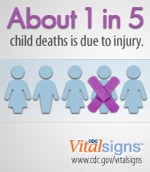Language, language
"...try to identify problems. If you cannot find the solution to these problems (you must see some, unless you are perfectly blind), then here is your opportunity!"
I addressed it with this comment: "Using the term "blind" as a synonym for clueless is offensive. My son is blind, but he's very observant. He pays attention and has an excellent memory. If you were playing Trivial Pursuit or working on a project, you'd want him on your team - vision or none."
The writer responded, letting me know that she had intended no insult or offense, that the term was merely a metaphor. I replied, suggesting other less offensive metaphors such as "rose colored glasses." This time, the writer threw a hissy fit with a note full of exclamation marks, accusing me of putting words in her mouth, insisting that it wasn't a big deal to use a metaphor such as "blind" to make a point.
I'd rather not link you to her article because she doesn't need more readers. I'd like to advise, however, that writers in any professional field watch their language. I'm not asking for excessive political correctness; I'm suggesting accurate language with a sense of consideration for others.
I'll use my own disability as an example. In previous centuries, hearing impaired people might have been referred to as Deaf and Dumb. Deaf, unable to hear well, Dumb meaning unable to speak.
In today's world, Dumb usually means stupid or unintelligent. Nonverbal would be the accurate term for someone who doesn't speak. Deaf describes some people, but Hard of Hearing or Hearing Impaired describes a group that includes many, many more.
Using a descriptive label as a put-down insults two groups: the target of the insult and the group being named in the put-down. Anyone who uses "deaf" to insult someone obviously hasn't met me or interacted with other people with hearing impairments.
Here comes the writing teacher in me. The statement above would have been more effective, not just less offensive, without the use of the word blind. Instead, I suggest the following.
"Identify problems and weaknesses. If you are honest with yourself, you will see areas in need of improvement. If you cannot find the solution to these problems, then here is your opportunity!"
Another option, using more colorful (but not insulting) language, would be this.
"Take off your rose-colored glasses, leave the optimist behind, and seek out problems. Finding the solutions to these problems will provide great opportunities."
Would you respect a co-worker who thought nothing of insulting disabilities? I wouldn't. Think twice, and use decent and respectful descriptive language.
(This post is also posted at MidCentury Modern Moms because frankly, many bloggers need to read it.)
Labels: disabilities
 Stumble It!
Stumble It!




2 Comments:
This is very thought provoking. I agree with you and understand why you took offense. It was rather ridiculous of the writer to be so offended though. You were just throwing an FYI out there.
Very thought provoking. I think the writer was out of line--esp. if this was in a professional arena (as opposed to a personal one where such mistakes are less hurtful). Especially in a professional sense this should be taken with grace and thankfulness that you pointed out the error.
Post a Comment
<< Home